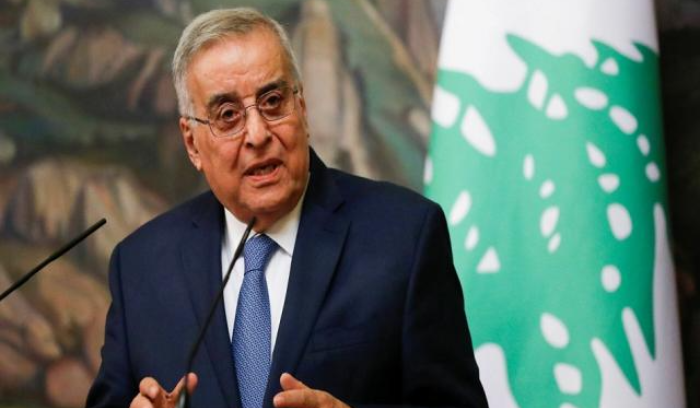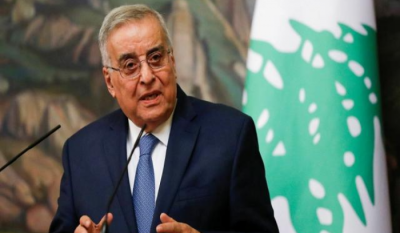The Minister of Foreign Affairs and Emigrants, Abdullah Bou Habib, noted today, Tuesday, that "the ministry's share in the 2022 budget amounts to only 77 million dollars, and we have asked ambassadors to reduce their salaries and the ministry's expenses." During a press conference, Bou Habib discussed internal matters of the ministry and its policy to rationalize spending in embassies, stating that "for local employees, the amount reached 28 million and 750 thousand dollars in 2022, a decrease of six million dollars from 2021. We have let go of 165 local employees, all of whom received severance pay. Additionally, we have reduced the high salaries of the remaining staff."
He added: "The reduction policy continues regarding office rentals and accommodations for heads of missions, saving around two million and 600 thousand dollars." He indicated that "the cost of maintaining state properties has been reduced by approximately 14 million dollars last year, which is a 75% reduction for administrative buildings and a 73% reduction for residential buildings." He continued: "Consular fees have been increased, especially after the cabinet approved before the end of President Michel Aoun's term the closure or suspension of work in 17 Lebanese missions abroad, to finance various expenses that are usually covered by the surplus, and severance payments are made from these fees."
Bou Habib also affirmed that "the Lebanese ambassador to France, Rami Adwan, was appointed outside the staffing structure and will return to Lebanon tomorrow after halting his work as an ambassador on the 14th of the current month. The chargé d'affaires, Ziad Taan, has taken over the leadership of the mission. We will refer all information we received regarding the case to the Ministry of Justice, and the courts will decide whether an error occurred or not." Regarding the appointment of an ambassador to Bahrain, he stated: "Appointing an ambassador in Bahrain is currently impossible, our embassy there is open, and a diplomat is working there. Also, the accredited Bahraini ambassador to Lebanon resides in Damascus."
**Syrian Refugees**
Bou Habib expressed that "it is out of the question to force the return of Syrian refugees. Despite the speech from the EU's foreign policy chief, Jose Borrell, I sensed understanding of our position in side meetings while respecting human rights, and we agreed to initiate a dialogue regarding voluntary return." Regarding the removal of the clause expanding UNIFIL's tasks, he said: "I met with the UN Special Coordinator in Lebanon and raised this issue with her. We are not insistent on deleting the clause, but as long as the rules of the game have not changed, why not return to the previous text?"
**Hani Shamitali**
For his part, the ministry's Secretary-General, Ambassador Hani Shamitali, stated that "consular fees are usually higher than the fees paid within the country, which is adopted in all countries worldwide." Regarding the replacement of passports for expatriates who do not possess biometric passports, Shamitali pointed out that "the international standards regarding biometric passports require that the General Security has a database and fingerprints of the passport holders. If the General Security does not have those data, we decided to grant biometric passports to those under fifteen and over sixty years old, as their fingerprints are not technically important. However, those between 16 and 58 years old who do not have the necessary fingerprints with General Security to issue the biometric passport will exceptionally be granted a renewal of their passports from the 2003 model, so as not to burden them with traveling to Lebanon to take their fingerprints, with the understanding that they will go to General Security upon their return to Lebanon to obtain a biometric passport."




